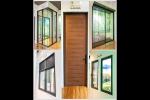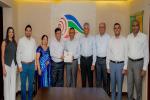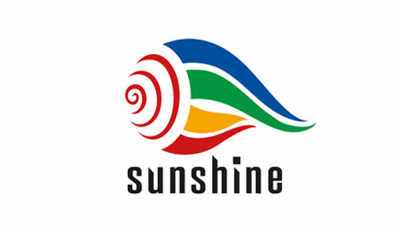The rating revision of the diversified conglomerate, along with two other non-financial corporates, follows the recalibration of Fitch’s Sri Lankan National Rating scale to reflect changes in the relative creditworthiness among the country's issuers, following the downgrade of the sovereign rating to 'B-' from 'B' in April.
Sunshine's 'A(lka)' rating reflects the Group’s leading positions in defensive sectors such as healthcare, fast-moving consumer goods such as packaged tea retailing, and protected sectors such as crude palm oil.
Fitch expects Sunshine to maintain its leverage commensurate with an 'A(lka)' rating in the medium term, despite vulnerability of some of its segments to the coronavirus pandemic.
Pandemic-related earnings drop
Fitch expects the financial impact stemming from social-distancing measures, and the ensuing economic downturn, to be manageable for Sunshine due to its exposure to defensive sectors.
Fitch expects the healthcare segment revenue to decline by around 5% yoy in FY21, stemming mainly from its pharmacies due to temporary store closures and less consumer footfall.
However, Fitch expects the pharmaceutical distribution and medical device sub-segments to see their revenue remain quite resilient in light of the essential nature of their products.
Healthcare retail is expected to pick up in late FY21, as social-distancing measures begin to ease.
Fitch expects the palm oil segment revenue to remain flat in FY21 on a decline in cultivation in the 1HFY21, as a result of labour shortages at plantations.
Nevertheless, domestic demand for palm oil is expected to remain resilient, due to lack of domestic supply brought about by regulatory pressures and high tariffs on imported palm oil.
Fitch expects the consumer goods segment, which is comprised of branded tea retailing, to see a sharp fall by around 15% yoy in FY21 due to disruptions in the general retail trade channels.
Low financial risk profile
Fitch expects Sunshine's leverage to remain below 1.0x over the rating horizon of FY20-FY23.
Fitch expects a slight increase in leverage from an estimated 0.8x in FY20 to 1.0x in FY21, as a result of our expectation in lower profitability, and to improve to 0.5x in FY22 upon a recovery in earnings.
Fitch expects Sunshine to pay dividends in FY21, however to defer some of its discretionary capex plans at least till next year- as a means to conserve cash, which should help contain any increase in its leverage.
Weaker profitability in FY21
Fitch expects Sunshine's EBIT margins to contract by around 230bps yoy to 9% in FY21 - as a result of weaker profitability stemming from the limited ability to cut costs owing to the low demand environment.
The consumer goods segment - which was already facing margin pressure due to competition prior to the pandemic, is expected to see its EBIT margin decline by around 170bps yoy to 6% in FY21, owing to less sales volumes.
Sunshine's healthcare EBIT margins to also contract slightly by around 100bps yoy to 7% in FY21, mainly stemming less footfall in the retail channel and forex pressures in pharmaceutical distribution - where price increases remain regulated.
Sunshine's agriculture segment EBIT margins are expected to decline by around 400bps yoy to 27% in FY21 - mainly due to subdued palm oil operations during the 1HFY21.
Fitch expects Sunshine's dairy farm to only breakeven from FY22 onwards, due to increased volume as the number of milking cows increase.
Increasing palm oil yield
Fitch expects Sunshine's yield per hectare to increase in the medium term, providing adequate revenue visibility over the FY20-FY23 rating horizon.
Palm oil is expected to contribute around 30% to Sunshine's cash flow over FY20-FY23.
The Sri Lankan government banned the planting of palm oil trees in November 2019, but this is not likely to have a material impact on Sunshine's cash flow during FY20-FY23.
This is because the average age of Sunshine's palm oil plantations is 11 years and around 56% of the cultivated area will remain in the prime age of 11-16 years over the same period.
Around 8% of the mature planted area is subject to the ban on replanting.
Volatility in power generation
Fitch expects the power generation segment to contribute around 10% to group EBITDA in the medium term and provide a degree of diversification to the group's cash flow generation.
However, uncertain weather patterns continue to be a risk as 90% of power-generation cash flow is from its hydropower plants.
Fitch expects Sunshine to continue investing in their energy segment in FY21.
Derivation summary
Sunshine's business risk profile benefits from defensive cash flows from pharmaceuticals and healthcare products, consumer goods, and the protected domestic palm oil industry.
Sunshine's cash flows are therefore more stable through economic cycles than rating peers Singer and Abans, the two largest consumer durables retailers.
Demand for Singer's and Abans' products is cyclical and they are also currently facing regulatory pressures from import restrictions.
Sunshine also has a much better financial risk profile, with low leverage and better liquidity, which more than offset its smaller operating scale and leads to a two-notch higher rating compared with Singer and Abans.
National scale ratings are a risk-ranking of issuers in a particular market designed to help local investors differentiate risk.
Fitch's Sri Lankan national scale ratings are denoted by the unique identifier '(lka)'. Fitch adds this identifier to reflect the unique nature of its Sri Lankan national scale.






















